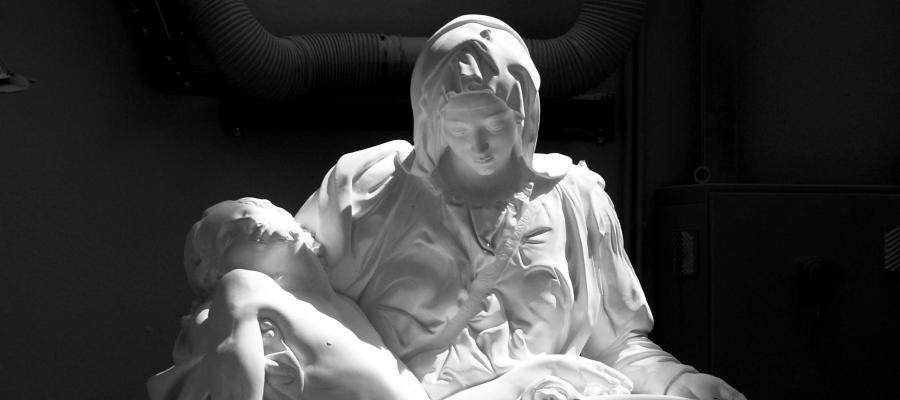
Have No Anxiety at All
by Father Brian J. Soliven on Sunday October 12, 2025
There is a scene in the Gospel according to Saint Luke, brief in its telling but vast in its implication, that speaks volumes about the human heart. Ten lepers cry out to Christ from a distance, exiled by their affliction, their humanity diminished in the eyes of the world. With a word, He sends them to the priests. As they go, they are healed. But only one returns! One out of ten. And even more shocking, it's a Samaritan no less who falls at His feet in thanksgiving. And Jesus asks, with divine ache: "Were not ten cleansed? Where are the nine?" (Luke 17:17).
Ten were healed; one was grateful. This is no small parable in passing. It is a mirror. We are all, in some manner, lepers—ailing in soul or circumstance, calling out to God in the wilderness. And He, in mercy, hears us. He grants healing, restoration, daily bread, breath itself. But how often do we return to give thanks?
The modern soul, so puffed with knowledge, tends to treat blessings as entitlements. Health is expected until lost. Beauty, until faded. Time, until it is spent. We do not thank the sun for rising; we demand it. But the thankful man, the one like the Samaritan, sees all with fresh eyes. He understands that he is not owed the sunrise, nor the healing, nor the gift of grace itself. All is gift. All is mercy.
The ungrateful man lives in illusion, thinking himself self-made, imagining a world where God is irrelevant. But the grateful man sees clearly. He sees the Giver behind the gift.
In the end, gratitude is not for God’s benefit, as though He needed our thanks. It is for ours. The nine were healed in body, yes—but the one who returned was healed in soul. Christ says to him, “Your faith has saved you." The Greek word here—sozo—can mean saved, made whole. The returning leper received more than the others because he gave more: he gave thanks.
Let us then cultivate the holy habit of gratitude, not as a mere politeness but as worship. Let us rise each day and say, “Thank You,” for the breath in our lungs, the light in our eyes, the cross that bore our salvation. For in giving thanks, we do not flatter God; we draw near to Him. We remember who we are, and more importantly, whose we are.
And perhaps, in the end, gratitude is the seed of every other virtue. For the man who is truly thankful will not be proud, nor greedy, nor bitter. He will walk humbly, love deeply, and live wisely.May we be the one who returns. In fact, by coming to Sunday Mass today, you are returning back to the God who gives us everything. You are the Samaritan. That is why the “Eucharist”, the greatest gift of all because it is Jesus Christ himself, comes from the Greek word, “thanksgiving”.







